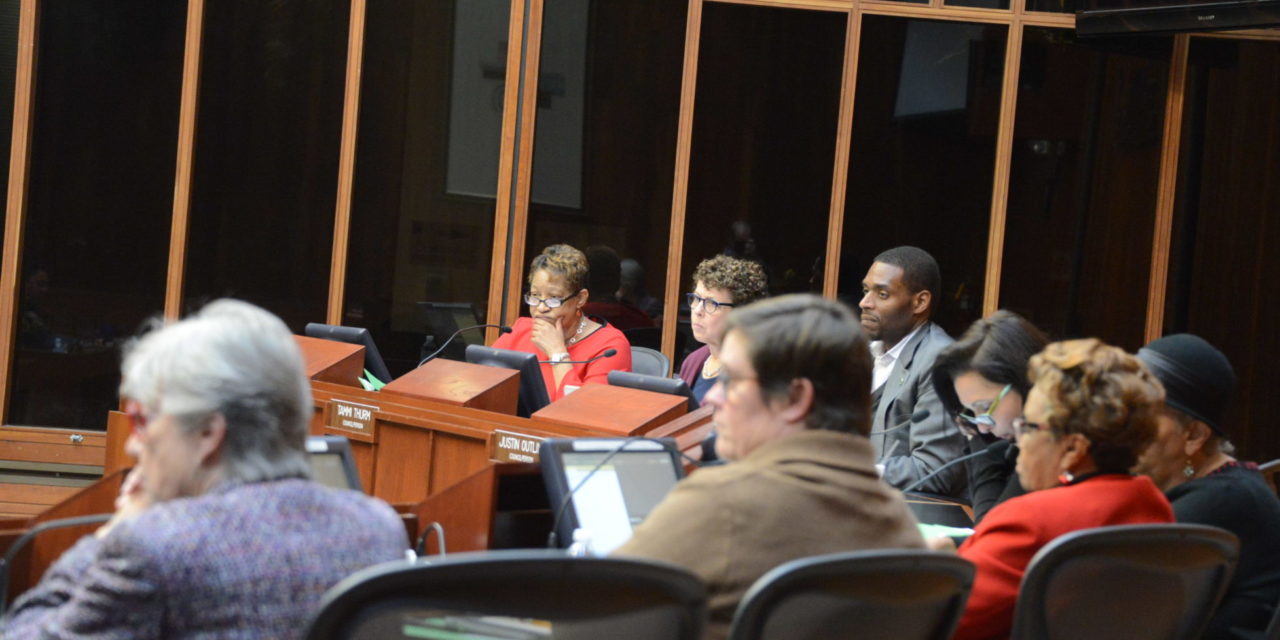Following an 8-1 vote of the City Council, Greensboro is now for the first time in the mental health business.
From the discussion at the City Council meeting on Tuesday, Dec. 17, it became apparent that nobody really knows how this brand new program is going to work, but the city manager is now authorized to sign a contract for $500,000 with the SEL Group to provide mental health services that will be available through a dedicated line 24/7 to any city employee who believes they are dealing with someone with mental health issues.
Councilmember Justin Outling, who cast the lone no vote on approving the contract, asked a number of questions about how the program would work, many of which were never answered. But some of his questions were. The city really didn’t investigate similar programs in other cities, as to what worked and what didn’t. But the city did base it’s request for proposals (RFP) on the RFP issued last year by Charlotte for a similar service.
But perhaps the most telling question of the evening was asked by Councilmember Tammi Thurm who asked, when someone called 911, if the Metro 911 dispatcher would at times dispatch a mental health counselor and not a police officer.
Assistant City Manager Kim Sowell said that if a call were made to 911, “Once they determine that there may be a mental health issue then that call would be made to the dedicated line to request assistance.”
Later Mayor Nancy Vaughan said that a program to dispatch mental health counselors instead of police would be a much more expensive program, which is why the police would always respond first.
Thurm then asked the question again and this time Assistant City Manager Trey Davis answered and said the police would always be dispatched and it would be up to the police to decide if the mental health counselors should be called.
During a discussion after the meeting with both Davis and Sowell, it became apparent that they had different ideas on how the program would work.
Davis pointed out that the original purpose of the program was to assist police officers when they found themselves dealing with someone with mental health issues and that the city then decided to offer the same assistance to all city employees.
In the discussion, Sowell finally agreed that the police would always be called first by the 911 dispatcher, but that is far different from what she said when asked the same question by Thurm during the meeting.
One of the questions that Outling asked, which was answered, was what are the metrics for determining if the program is a success. Sowell said that the city wouldn’t know how to measure success until after the program started.
Outling also asked what about the expected timeline for the mental health counselors to respond to a call from police or any city employee. Davis said 30 to 45 minutes, which means for the first 30 to 45 minutes of dealing with someone having a mental health crisis the police are going to be on their own, just as they are today.


The Soviet Union locked up political desidents in mental health “hospitals”.
It’s so typical of this Greensboro City Council, voting on spending $500K without specifying any measure of what success looks like. How will they know whether to renew this contract next year, look for another provider or cancel this service?
Spending someone else’s money is soooo easy. Achieving measurable results takes hard work.
The mental health of the City Council should be the first topic addressed by the new mental health professionals.
The last paragraph from above sums it up completely ,,,, Davis said 30 to 45 minutes, which means for the first 30 to 45 minutes of dealing with someone having a mental health crisis the police are going to be on their own, just as they are today.
AND we are paying $500,000 just for the first year for NOTHING changing ,,,,????
When can we vote for city council members again ?? Just asking …..
This smacks of the times before the so-called mental health reform when the county/regional so-called service providers didn’t. Or even after those so-called better reforms that saw community care so-called case managers riding around or going to movies and billing the state for huge amounts of tax bucks. And doing nothing or little.
Yeah, it all worked out fine then—for folks that weren’t the folks with mental and/or substance problems.
How do I know? Retired private professional.